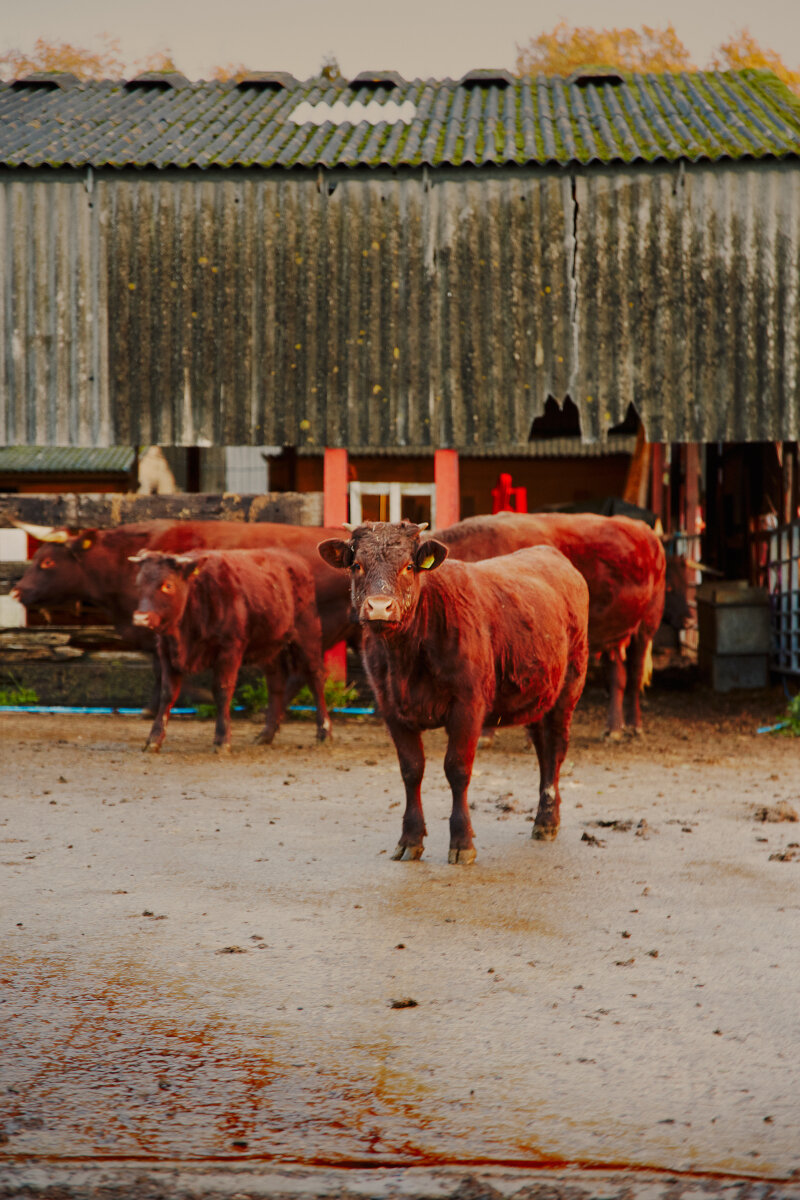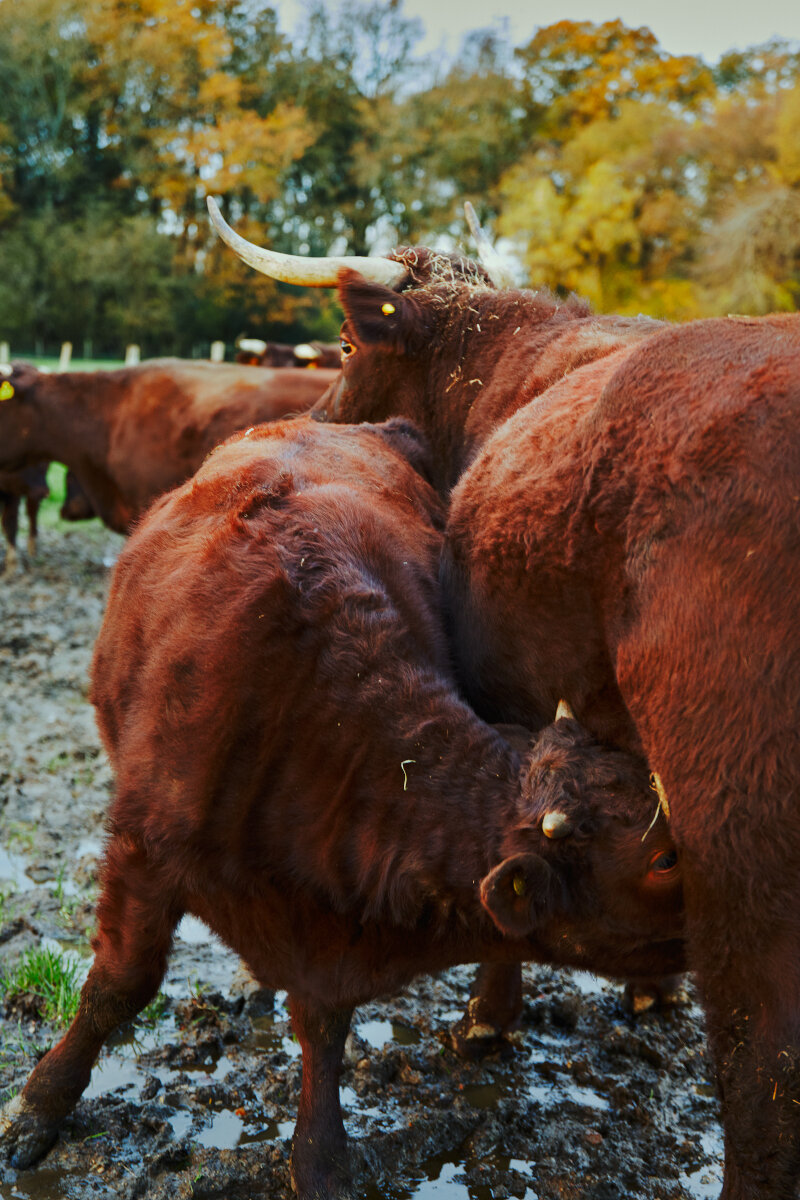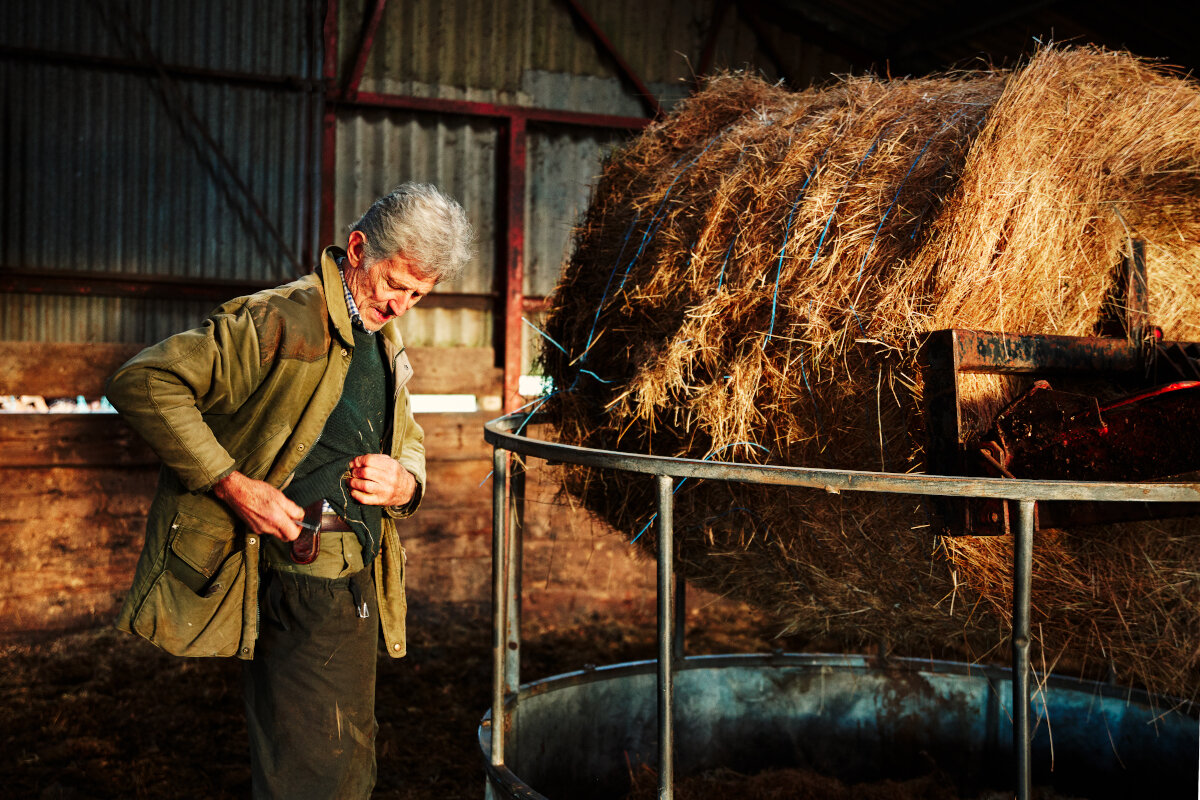The winter months draw to a close
I have been asked to write a little on each season on our farm. This is to give you a flavour of our lives behind the scenes of the rejoiced Sussex Peasant lorries that are popping up throughout Brighton and the surrounding villages.
I apologise in advance to those looking for a cheery account. Winter is a sombre and somewhat dreary period in the farming year. (I’ve just looked up dreary in the Oxford Dictionary and it reads – depressingly dull, bleak and repetitive – a fitting description!)
It begins in October, when we wait to see when the weather will dictate bringing the cattle into the barns for the winter months. We do this in order to prevent these magnificent beasts from ‘poaching’ the land. This happens after a long period of rain and the ground is left soaked. If left on the land, the cattle’s hooves will indent the soil and cause lasting damage to the pasture, preventing grass growth in the spring.
As we share the ethos of biodynamic farming, our cattle keep their horns (the reason is very involved and definitely a whole article in itself!) Horned cattle need plenty of room when wintered in barns so that they don’t feel stressed and potentially hurt each other. We also give them an area adjacent to the barn where they can roam outside so that they can enjoy the elements and the striking views that we are so fortunate to have on the farm.
For bedding we use hay. Most farmers use straw, but as we aim to be self-sufficient, and our farm is not suited to growing cereals, we only produce grass. This is mown and dried in the summer months to make the hay that we use for feeding and bedding. We also believe in the benefits of exclusively feeding grass to our cattle and sheep.
As already mentioned in our previous blog post, “Reflections on the Year”, we experienced a terrible drought last summer and the farm only produced 20% of its normal average hay yield. We had to buy hay in for the first time which was extremely expensive. For bedding we have, also for the first time, been using local wood chips donated by our local tree surgeon.
Because we wanted to keep the cost of buying in bedding to a minimum, we decided this winter to try leaving some of the young stock outdoors and to take hay to them daily. We chose a field that we plan to cultivate and direct drill as a herbal lay in the spring and therefore don’t mind if it gets poached by the cattle over the winter.
Due to the continuous wet weather in January, we did decide to alter the barns and bring them all in, meaning that we couldn’t avoid buying in the bedding after all. The final loss that the farm made last year due to the drought was £5,000 instead of £3,000 that we had hoped for.
By the time we get to February, the daily feeding and bedding up of the cattle feels endless and our energy levels do feel depleted. The financial burden hangs heavy and this together with the endless mud and I mean ENDLESS mud (the joys of farming on Wealden clay!) can make the winter months a real challenge.
Regarding our sheep, the load is much lighter throughout the winter months. They stay outside as they do not damage the soil and are checked daily. There’s little we have to do for them as we chose a self-sufficient breed called Romney. One of the main benefits of this breed is that they have very good feet and need little attention in spite of the heavy clay soils that they roam.
Although this is a gloomy account of our farming year so far, we have been here before and we know that change is around the corner. Spring is already in the air. This is when we see the first newborn lambs and Michael and I are filled with joy. We smile, look at each other and say, “We made it through the winter!” Looking out at the uplifting sight of the sheep tirelessly mothering their offspring really brings home to us why we farm, and why we farm the way we do.
Being stewards of the land and livestock teaches us to live very much in the present. It is difficult to set any plan in stone. This often brings many stresses, and we have to be prepared for anything. However, this is life! For as many lows and difficult periods there are equally as many highs and rewarding times. It is these peaks and troughs that make farming such a rewarding task.
I was born into farming and spent the first 20 years intimately connected with it. For 10 years I thought life would be better chasing the limelight of London. I can now honestly say that for all the seeming security and financial gain that can be had by working in the city I would never return there. Being completely immersed in nature with my feet firmly planted on the land is absolutely where I want to be for as long as I live. For me there is nothing else that satisfies me in the same way. I only wish that more people could work and feel connected to the land. By supplying Ed with our meat, I hope to pass on the connection in some way and that you are able to rejoice in the link back to nature as much as I do!
Thanks go to Ed, The Sussex Peasant and Jack Boniface for the photos





